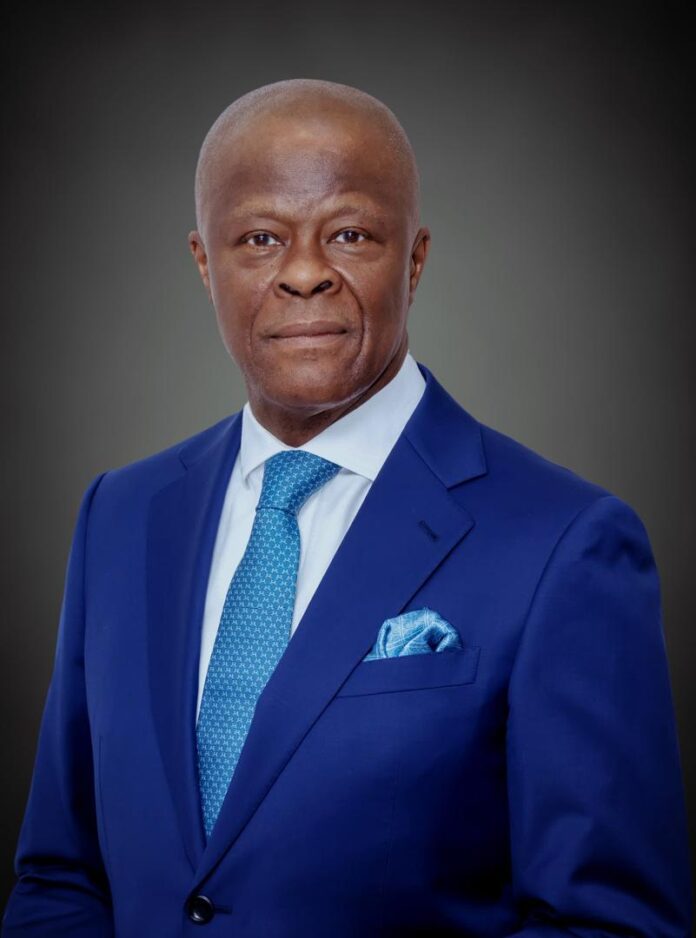Nigeria’s Minister of Finance and Coordinating Minister of the Economy, Mr. Wale Edun, has welcomed the newly rebased Gross Domestic Product (GDP) figures and the Q1 2025 economic growth rate of 3.13%, describing them as solid indicators of Nigeria’s economic resilience and foundation for a new era of sustained growth.
The rebasing—Nigeria’s first GDP recalibration since 2014—was carried out by the National Bureau of Statistics (NBS) in accordance with global best practices. It aims to provide a more accurate picture of the economy by updating the base year used in compiling national accounts.
“This rebasing gives us a clearer and more contemporary view of our economy’s size and structure. It helps policymakers, investors, and citizens understand where we are, and where the opportunities lie,” Edun said.
The updated data highlight Nigeria’s transformation from an oil-dependent economy to one increasingly driven by services, technology, and diversified production. Sectors such as ICT, entertainment, finance, and professional services have gained prominence, while oil and gas now occupy a smaller share of the economic pie.
“These are not abstract shifts. They reflect the energy of our young, tech-savvy population and the growing success of reforms aimed at deepening economic participation,” Edun added.
He noted that agriculture and manufacturing remain cornerstones of the economy, even as digital and creative industries take centre stage in the updated GDP structure.
Q1 2025 Growth Surpasses 2024, Signalling Upward Momentum
Nigeria’s economy expanded by 3.13% year-on-year in the first quarter of 2025, up from 2.4% in the same period last year. This performance, Edun said, confirms the momentum being built under President Bola Tinubu’s Renewed Hope Agenda.
The growth was largely driven by strong output in agriculture, telecommunications, construction, and financial services—sectors that also align with the government’s priority areas for reform and investment.
“This is broad-based growth, occurring across vital sectors. It shows our macroeconomic reforms are working and that the foundation for inclusive, long-term development is taking shape,” the Minister noted.
He reiterated the administration’s medium-term goal of achieving 7% annual GDP growth, adding that current trends suggest Nigeria is on the right track.
Growth with Impact Is the Target
Beyond headline figures, Edun emphasized the government’s goal of growth with impact—economic expansion that translates into real gains for citizens through quality job creation, higher incomes, and improved living standards.
“The new GDP numbers will help us track progress more effectively, fine-tune our policies, and ensure that growth benefits everyone—not just a few,” he said.
He also praised the National Bureau of Statistics for conducting the rebasing with professionalism and technical depth, calling the updated economic data “critical tools” for sound policymaking.
“Reliable data ensures we design interventions based on reality, not assumptions,” Edun added. “It’s how we build an economy that works for all Nigerians.”
Outlook Positive as Reforms Take Hold
The Ministry reaffirmed its commitment to continuing fiscal discipline, structural reforms, and targeted investments in infrastructure, innovation, and human capital development. These steps, it said, are necessary to accelerate Nigeria’s economic transformation and lift millions out of poverty.
“The economy is modernizing, diversifying, and showing renewed momentum. With discipline, data, and determination, we are on course to deliver lasting prosperity,” the Minister concluded.














